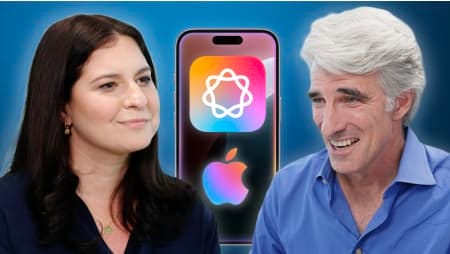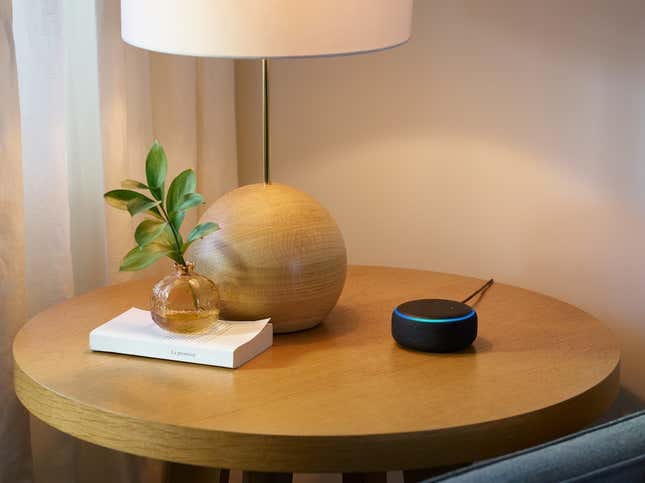
AI: Amazon Alexa's AI reboot travails. RTZ #530
I’ve often discussed how AI Voice modality is hard in these early days of the AI Tech Wave. Especially for incumbents seeking to ‘add-on’ LLM AI/Generative AI capabilities to existing multi-billion dollar ‘platforms’ like Amazon Alexa/Echo, Google Nest/Assistant, and the old-timer Apple Siri. Apple and Google are in competition on this front with their smartphones based voice assistants as I’ve discussed.
But Amazon in particular has had a tough public effort to upgrade its $50 plus billion dollar, multi-year, Alexa investment with the latest Generative AI capabilities. Even after the ‘success’ of seeding hundreds of millions of devices in homes everywhere. And their being used as alarm clocks, timers, and Spotify music players.
This set of issues continues, as Bloomberg reports in “Alexa’s New AI Brain Is Stuck in the Lab”:
“Amazon is eager to take on ChatGPT, but technical challenges have forced the company to repeatedly postpone the updated voice assistant’s debut.”
The AI project has had issues through this year, as media reports describe here and here. I covered the topic this summer.
Bloomberg in particular notes how the timelines continues to slip:
“At one point, the company aimed to unveil the finished product at a splashy event with Jassy on Oct. 17, according to internal documents reviewed by Bloomberg. Amazon scrapped that plan, instead holding a smaller launch party showcasing new versions of its Kindle e-readers. A person familiar with the matter said Alexa AI teams were recently told that their target deadline had been moved into 2025.”
“Amazon, which declined to make executives available for interviews, said its vision remains to build Alexa into the world’s best personal assistant, and that generative AI represents a huge opportunity to improve the service. “We have already integrated generative AI into different components of Alexa, and are working hard on implementation at scale—in the over half a billion Alexa-enabled devices already in homes around the world—to enable even more proactive, personal, and trusted assistance for our customers,” spokesperson Kristy Schmidt said in an emailed statement.”
All of the above pieces have mounds of detail worth reading. If only to understand the technical, management, and ‘vision’ difficulties of taking the latest and greatest AI innovations from the research lab ‘Science Projects’, and creating Scalable AI mainstream products and services around them.
We’re seeing similar challenges and extended timelines from Apple, as it hones its ‘Apple Intelligence’ strategy. Especially in regards to revamping its venerable Siri service with Generative AI. As Apple software chief Craig Federeghi explains to the WSJ’s Joanne Stern just last week (video interview here):
“I’ve been testing Apple Intelligence on my iPhone and iPad. Apple’s ability to build tools right into the operating systems is undeniably powerful and convenient. But many are half-baked. I asked Federighi to explain the features—and Apple’s broader AI strategy.”
“Smarter Siri?”
“When you summon Siri in iOS 18.1, the screen’s edges light up with a rainbow glow and a more human-sounding voice responds. You can even type your queries by tapping at the bottom of the iPhone screen.”
“It’s like a Hollywood remake: fancier special effects but the same old plot holes. Siri is still best for basic commands (timers, weather and music, etc.), and often falls back on “Here’s what I found on the web” or admits it doesn’t understand. That is, unless you ask about using your Apple device—say, how to adjust Screen Time limits. That’s when generative AI kicks in and “new” Siri shines.”
“So where is this smarter Siri—the one that can piece together context from your calendar, email and messages to take action? The one that can call on ChatGPT if it doesn’t know the answer?”
“Siri is adopting that in stages and will benefit in stages over the coming year,” Federighi said.“
This week’s Bloomberg piece gives more color on Apple’s near term Apple Intelligence roadmap:
“Apple’s next slate of AI features is scheduled to arrive in early December. The iOS 18.2 operating system update, which includes major improvements to Apple Intelligence — like ChatGPT chatbot integration, the Image Playground app and custom emoji known as Genmoji — is likely to arrive on the earlier side of December, I’m told. How early? The week of Dec. 2, barring any unexpected delays. The next major update to Apple Intelligence after that will come in April as part of iOS 18.4 and will include improvements to Siri. It should let the digital assistant tap into people’s data and respond to queries based on the information on their screens.”
Of course, the true competition for both these incumbents is showing up with LLMAI juggernauts like OpenAI, Microsoft, Meta others.:
“Recently, OpenAI, Meta and Microsoft gave their chatbots eerily humanlike voices, enabling them to hold long conversations and answer questions about the world.”
“Apple’s assistant is built differently, Federighi said, emphasizing that it processes 1.5 billion requests daily. Those other chatbots are great if you want to ask a question about quantum mechanics, he said, but they won’t open your garage or send a text message.”
“There’s a trade-off across capabilities,” he said. “Will these worlds converge? Of course.”
I’ve written extensively about these efforts as well, particularly Meta’s ambitions with Meta AI and it’s wearable Ray-ban ‘Smart Glasses’.
The point it that these innovations are hard technically, and they’re hard in figuring out ‘sticky’ mainstream use cases for billions. Especially beyond the use cases for Alexa, Siri et al today as Bloomberg underlines:
“It’s true that Alexa is little more than a glorified kitchen timer for many people. It hasn’t become the money maker Amazon anticipated, despite the company once estimating that more than a quarter of US households own at least one Alexa-enabled device. But if Amazon can capitalize on that reach and convince even a fraction of its customers to pay for a souped-up AlexaGPT, the floundering unit could finally turn a profit and secure its future at an institutionally frugal company. If Amazon fails to meet the challenge, Alexa may go down as one of the biggest upsets in the history of consumer electronics, on par with Microsoft’s smartphone whiff.”
“Some employees blame Alexa’s woes on bureaucracy and management bloat that Jassy has been trying to extinguish. (In a Sept. 16 company-wide memo, he criticized unnecessary “pre-meetings for the pre-meetings for the decision meetings.”) Other insiders speak of deeper problems with the Amazon playbook that has historically thrived on sustaining early leads, such as with Prime, Kindle and the Amazon Web Services juggernaut that Jassy ran for 18 years before succeeding Jeff Bezos as CEO in 2021. The company is also known to mount swift comebacks, outmaneuvering eBay Inc. with its own marketplace for independent sellers or taking on Netflix Inc. in streaming video. Even Alexa only won by hurdling Apple Inc.’s Siri.”
Perhaps the answer is for one of these companies is to ‘spin-off’ these services and let them build their platforms horizontally beyond the walled gardens and silos of their parent big tech ‘mother ships’. It’s a strategy I’ve discussed before in terms of pros and cons.
In the meantime, converting these voice platforms into LLM AI enabled voice platforms for mainstream audiences in this AI Tech Wave may take longer than expected. Stay tuned.
(NOTE: The discussions here are for information purposes only, and not meant as investment advice at any time. Thanks for joining us here)













